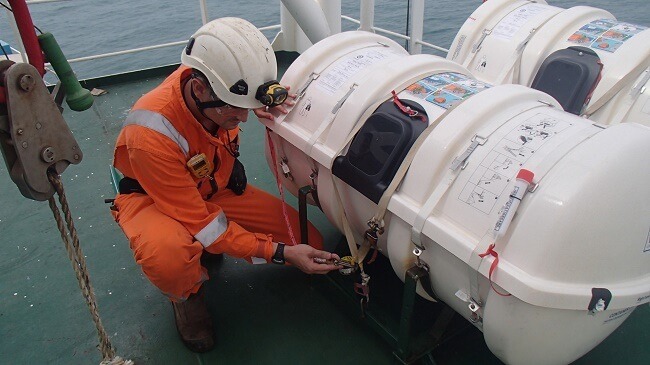All ships sailing in international waters are required to comply with the international codes and conventions put forth by the maritime authorities. For this, ships should be maintained at a particular standard by the combined efforts of flat states, shipping company, and ship’s master.
In order to ensure that the condition of foreign ships is well above the excepted level, inspections are done on the ships when they visit international ports. This inspection of foreign ships is known as port state control (PSC).

Representation Image – Credits: lr.org
The regulation of port state control was brought in by the formation of Paris Memorandum of Understanding (MOU), which also put forth the general criteria for inspection procedures of all types of ships.
Paris memorandum of understanding (MOU) laid down few general rules for the inspection of foreign vessels. They are as follows:
- Inspection would be carried out on ships coming to a port for the first time or after an absence of 12 months of more
- Inspection would be carried out of ships which have been permitted to leave the port of a state with deficiencies to be rectified
- Inspection would be carried out of ships which have been reported as being deficient by pilots or port authorities
- Ships whose certificates are not in order would be inspected
- Ships which has been involved in any kind of accident such as grounding, collision or stranding on the way to a port will be inspected
- Inspection of ship which are carrying dangerous or polluting goods and have failed to report relevant information would be inspected
- Ships which have been suspended from the class in the preceding 6 months would be inspected
- Ships which have been subject of a report or notification by another authority would be inspected
- Inspection of ships which are accused of an alleged violation of the provision of IMO as to pose a threat to the ship’s crew, property, or environment would be inspected
A ship is allowed to leave a port only on condition that the deficiencies found will be rectified before the departure or at the next port or within 14 days.
What all things are checked during port state control (PSC) inspection?
A port state control inspection involves checking of several aspects of the ship in both deck and engine departments of the ship.
The survey involves checking of important shipping documents, technical details, and structural elements of the ship.
Documents that are checked during port state control (PSC)
Important things that can be checked in the engine room during a port state control (PSC)
A ship is detained mainly when she is found to be dangerously unsafe to the safety of the ship, its crew and to marine environment. She can also be detained when the condition and standard of the ship is in complete contravention with the regulations put forth by the IMO and other maritime authorities.
The data collected from port state inspections of all the ships is stored in an information system called the “Equasis.
Find out more about Equasis here.
After the inspection, it is the duty of the master to report to the company regarding the outcome of the inspection.